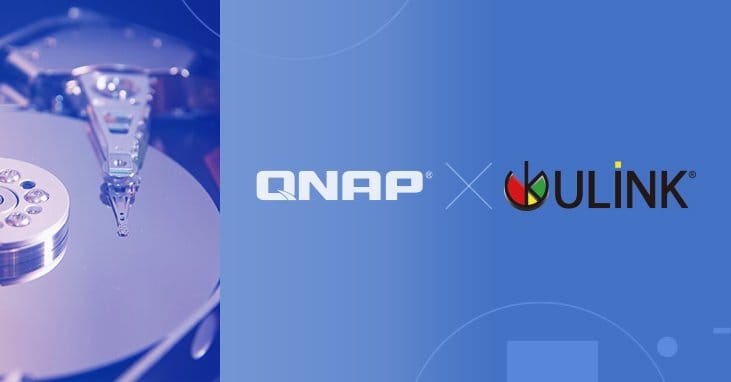QNAP Systems and ULINK Technology have announced that they are collaborating on a health analysis and fault forecasting service for smart disks powered by artificial intelligence. NAS users should thus get an early indication of potential disk problems.
ULINK provides IT storage test tools, QNAP creates computers, networks and storage solutions. The service of the two companies should therefore focus on users of NAS systems. By being aware of possible disk problems at an early stage, valuable downtime and business interruptions can be prevented.
“With our experience, we hope to provide users with a protection mechanism before the drive becomes unusable,” said Joseph Chen, CEO of ULINK.
The QNAP NAS collects disk health information through optional licenses. This information is then presented to the ULINK database for analysis and forecasting of faults. The details of the results can be viewed by users both on the ULINK website and within QTS. Both companies claim to comply with the GDPR and CCPA rules to protect the privacy and confidentiality of user data.
When the service becomes available, it has yet to be announced. However, it is already known that the Artificial Intelligence-based service for health analyses and interference forecasting is being shown by QNAP and ULINK during Computex in Taipei.
AI-NAS
In March of this year, QNAP introduced a new NAS that also contains artificial intelligence features. The NAS, the TS-2888X, has been specifically optimized to train artificial intelligence models. The device must therefore provide everything needed for artificial intelligence and machine learning, as well as significantly reduce latency. It also accelerates data transfers and eliminates performance issues.
The NAS includes Intel Xeon W processors with 18 cores, as well as 36 threads and a peak power of 4.5 GHz. The NAS has room for four high-quality graphics cards. It also supports up to 512 GB of DDR4 ECC RDIMM 2666 MHz-RAM. The device has eight PCIe slots and an 80Plus Platinum power supply of 2,000 watts.
This news article was automatically translated from Dutch to give Techzine.eu a head start. All news articles after September 1, 2019 are written in native English and NOT translated. All our background stories are written in native English as well. For more information read our launch article.